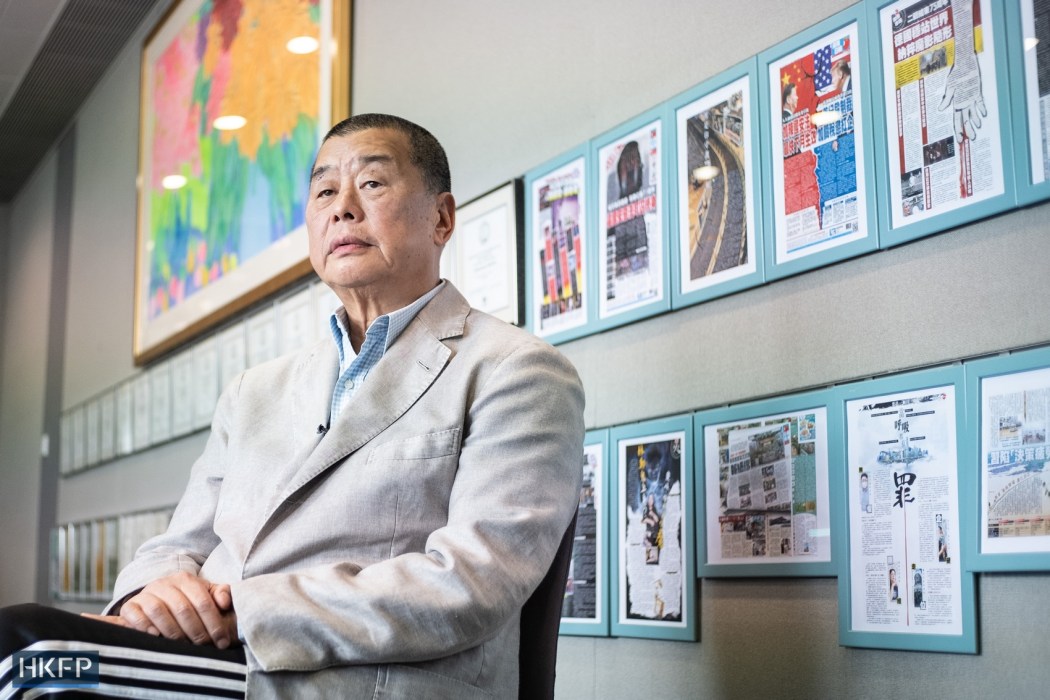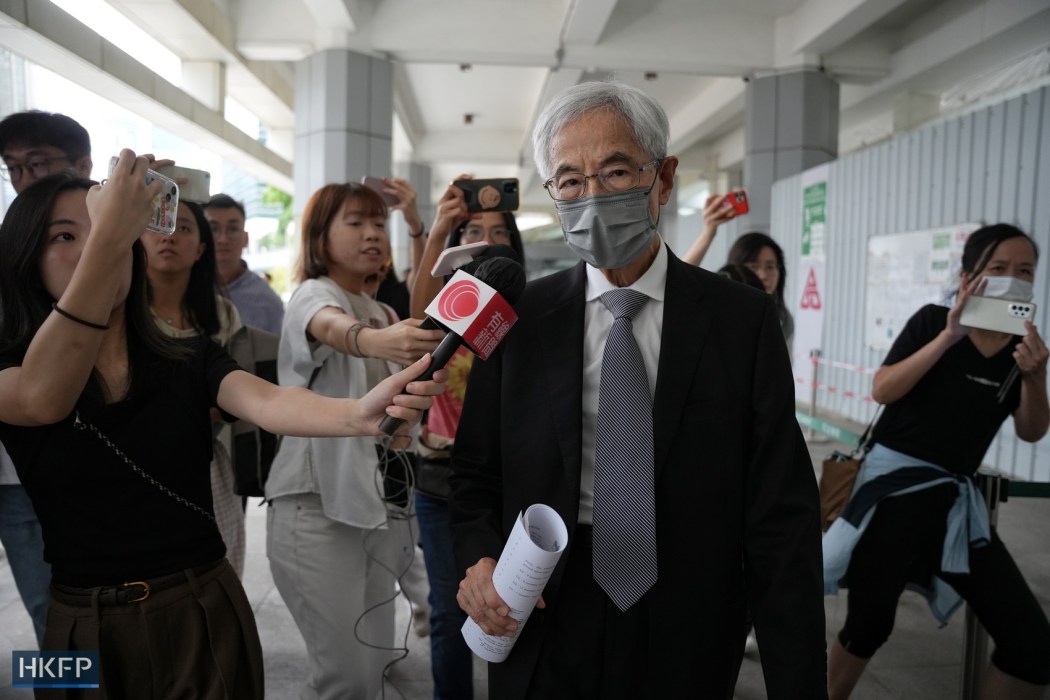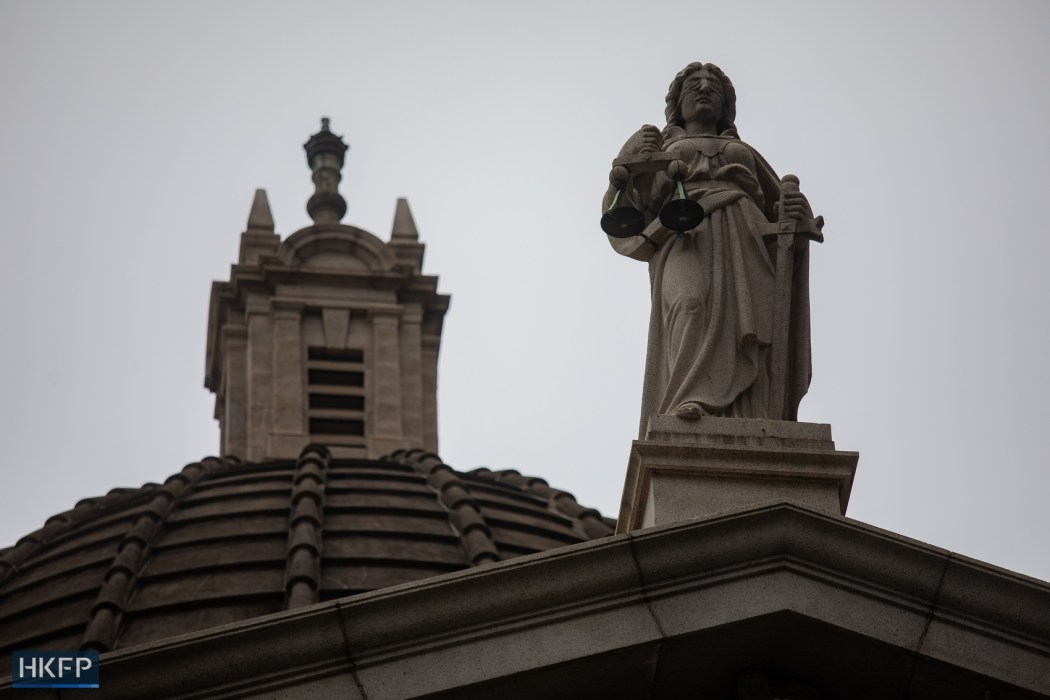Seven veteran Hong Kong democrats – including media tycoon Jimmy Lai and “father of democracy” Martin Lee – have been given a chance to appeal their convictions over a 2019 protest at the city’s top court.

In a judgement released on Friday, the Court of Appeal granted a certificate to the democrats with which they can apply to challenge their convictions before Court of Final Appeal judges. The decision moves them one step along the legal system’s convoluted appeal procedure.
Lai and Martin Lee, together with other prominent activists Lee Cheuk-yan, Margaret Ng, Leung Kwok-hung, Cyd Ho, and Albert Ho, sought to challenge their convictions related to a protest on August 18, 2019. Organisers estimated that 1.7 million people attended a rally in Causeway Bay’s Victoria Park that day, as months-long protests against a controversial extradition bill continued.
Police approved the static assembly at Victoria Park, but banned the ensuing march and rally in Central.
The seven were found guilty in the District Court in April 2021 of organising an unauthorised assembly and knowingly taking part in an unauthorised assembly. They were given jail terms of up to 18 months, while Martin Lee, Albert Ho and Ng were given suspended sentences.
The democrats appealed against both charges at the Court of Appeal and were cleared of the organisation charge in August. The participation charge was upheld.

With the certificate, the activists will be able to seek permission for a last chance to appeal the remaining participation charge at the Court of Final Appeal.
The seven democrats were among nine figures in the unauthorised assembly case. The other two, ex-lawmakers Au Nok-hin and Leung Yiu-chung, were also charged. Au pleaded guilty to both charges, while Leung pleaded guilty to the participation charge. The prosecution did not proceed with the organisation charge for Leung.
Au and Leung did not file an appeal.
Gov’t chance at appeal rejected
In the written judgement handed down on Friday, judges Andrew Macrae, Maggie Poon and Anthea Pang summarised the arguments of the appellants, who said the police ban on the August 2019 march excessively restricted their freedom of expression.
Meanwhile, the judges shot down an appeal bid by the Department of Justice to challenge the Court of Appeal’s acquittal of the activists on the organising charge.

In the same judgement, the judges wrote: “It has not been suggested to us that this Court’s approach, in particular, as to the notion of ‘organizing,’ departed from any other known authorities.”
They added that it did not see how the Department of Justice’s arguments lent themselves to “free-standing questions of law independent of the facts involved.”
While the application was rejected, the government can still apply for a certificate directly from the Court of Final Appeal, meaning it could have a chance to challenge the lower court’s acquittal.
All of the activists who were jailed for this case have completed their sentences, but four remain in custody pending trial or sentencing under the national security law.

Lai, the founder of defunct pro-democracy newspaper Apple Daily, is due in court on December 18, when his long-awaited trial over conspiracy to collude with foreign forces and sedition is due to get underway following a string of postponements.
Albert Ho and Lee Cheuk-yan, both ex-lawmakers and former leaders of the pro-democracy group the Hong Kong Alliance in Support of Patriotic Democratic Movements of China, have been charged under the security law for allegedly inciting subversion. No date for the trial, which will, like other national security trials, be tried without a jury, has been set. The group organised annual Tiananmen vigils in the city until recent years amid Covid-19 and the national security law.
Former lawmaker Au is also in custody. One of the 47 democrats charged over their involvement in a legislative primary, he pleaded not guilty to conspiring to commit subversion. All of the defendants will be sentenced after the trial, which came to a close last Monday, although judges said a verdict would only be tentatively delivered in three to four months.
Beijing inserted national security legislation directly into Hong Kong’s mini-constitution in June 2020 following a year of pro-democracy protests and unrest. It criminalised subversion, secession, collusion with foreign forces and terrorist acts – broadly defined to include disruption to transport and other infrastructure. The move gave police sweeping new powers, led to hundreds of convictions amid new legal precedents, whilst dozens of civil society groups disappeared. The authorities say it restored stability and peace to the city, rejecting criticism from trade partners, the UN and NGOs.
Support HKFP | Policies & Ethics | Error/typo? | Contact Us | Newsletter | Transparency & Annual Report | Apps
Help safeguard press freedom & keep HKFP free for all readers by supporting our team

LATEST FROM HKFP
HKFP has an impartial stance, transparent funding, and balanced coverage guided by an Ethics Code and Corrections Policy.
Support press freedom & help us surpass 1,000 monthly Patrons: 100% independent, governed by an ethics code & not-for-profit.










